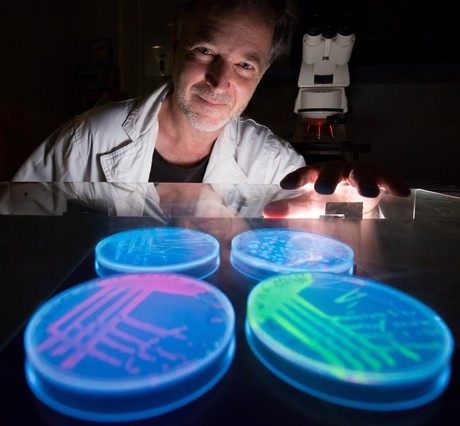How humans are spreading bacteria around the planet

Most of us are aware of the impact globalisation is having on vulnerable rainforests, apex predators and a swathe of endangered species, but little attention is paid to how human activity is affecting microorganisms across the planet.
Macquarie University’s Professor Michael Gillings has co-authored an editorial article in Science, warning that millions of microbial species are being moved around the world at an unprecedented scale, which could have major consequences for vulnerable ecosystems and long-term impacts on human health.
“The oxygen we breathe is largely made by photosynthetic bacteria in the oceans (and not by rainforests, as is commonly believed),” said Professor Gillings.
“We’re moving trillions of ocean microbes around the world in ballast water. Some one hundred million tonnes of ballast water — carried in ships to help improve stability — is dumped in US waters each year. We know they’re introducing foreign starfish, sea snails and seaweed. But we don’t know what invisible changes they’re making to ocean microbes as well.”
Professor Gillings and colleagues from around the world believe urgent action is needed to monitor how we are moving and disrupting microbial populations through trade, tourism and waste disposal.
“Over 95% of the faeces in the world comes from humans and the animals we farm. And our poo is travelling around the world with a billion tourists, spreading microbes and antibiotic resistance genes,” said Professor Gillings. “Until 100 years ago all the nitrogen in our food came from bacteria we nurtured in our crops. Now more than half comes from artificial fertilisers.”
Some of these microorganisms are benefiting from our actions, finding new ecological niches, while others may be at risk of extinction. As the Science article states, “our survival may depend on these microbial winner and losers”.
Professor Gillings believes we need to create better models for tracking the movement of genes through microbial communities on a global scale. Ignoring this issue could have disastrous consequences for human health in the near future.
“Microbes usually perform their essential ecosystem services invisibly, but we ignore them at our peril.”
This article was co-authored by researchers from: Spain’s CSIC/CREAF; France’s Universite de Lyon; the Universities of Nottingham and Leeds in the UK; and the Chinese Academy of Sciences.
Transforming health care through digitisation
Australian health regulations require medical records to be retained for decades, with physical...
AI hallucinations are eroding trust in lab tools — but there are solutions
Several key factors will shape whether AI becomes a truly reliable scientific partner or remains...
Cutting turnaround times without cutting corners
Modern, cloud-based laboratory information management systems (LIMS) can help avoid many of the...



